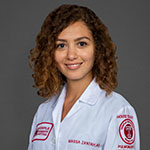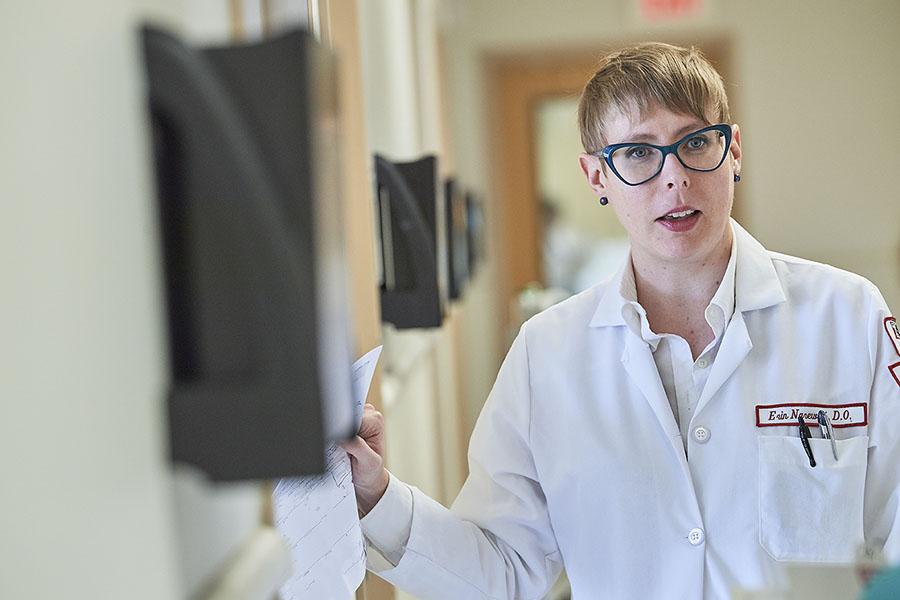Specialists at the Temple Lung Center treat hundreds of patients every year through our Pulmonary Fibrosis Program. With more than 200 known types of interstitial lung disease that may result in pulmonary fibrosis, it requires a team of experts working together to diagnose and treat this complex condition. While there is still no cure for pulmonary fibrosis, Temple offers promising new therapies combined with long-term support to help our patients live longer and breathe better with the best quality of life possible.
Although extensive research has been done, our understanding of pulmonary fibrosis is still evolving. There’s still much to learn about how pulmonary fibrosis develops, what steps we can take to prevent it, and how we can contribute to the discovery of life-saving treatments. Our involvement in groundbreaking clinical trials helps put us at the cusp of new findings and gain the knowledge and technology to bring those treatments to you.
Temple’s Pulmonary Fibrosis Program features:
- The renowned expertise of Temple’s Lung Center team, including pulmonary specialists and members of Temple’s Lung Transplant team
- A broad team of experts who collaborate from every discipline linked to pulmonary fibrosis, including Medical Genetics, Infectious Diseases, Gastroenterology, Pulmonology, Respiratory Therapy, Cardiology, Sleep Medicine, Diagnostic Radiology and Pathology
- Access to the latest medications that help slow the progress of lung scarring, including anti-fibrotic medications such as nintedanib and pirfenidone
- Involvement in the latest clinical trials evaluating novel therapies in the treatment of interstitial lung diseases such as pulmonary fibrosis and idiopathic pulmonary fibrosis
- A robust Pulmonary Rehabilitation Program to help patients optimize long-term health and overcome the challenge of acute exacerbations
- The highest level of acute care for hospitalization support when needed
- A Palliative Care Program with a focus on quality of life for you and your loved ones
- The nation’s largest Lung Transplant Program in volume for 5 consecutive years (2022 Scientific Registry of Transplant Recipients data)


